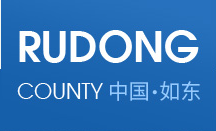ZTT Group committed to boosting ultracapacitor development

ZTT Group – based in Rudong county – is committed to developing ultracapacitors and helping fulfill the nation's promise of peaking carbon emissions before 2030 and realizing carbon neutrality before 2060. [Photo/ntfabu.com]
A seminar on promoting the development of the domestic ultracapacitor industry – as well as the localization of critical materials – was held in the prefecture city of Nantong in East China's Jiangsu province on May 15-16.
Ultracapacitors are electrical energy storage devices that have the ability to store a large amount of electrical charges and can thus be used extensively in new energy vehicles and in similar applications.
Representatives from the Ministry of Industry and Information Technology, Tsinghua University and leading industrial enterprises participated in the event.
The country's commitment to peaking carbon emissions before 2030 and realizing carbon neutrality before 2060 has reportedly made people attach greater importance to the role of the ultracapacitor.
ZTT Group, a high-tech enterprise which advocates developing the clean and low-carbon economy and is based in Rudong county in Nantong in East China's Jiangsu province has been engaged in the ultracapacitor field for a long time now and it has joined hands with colleges and universities in developing new ultracapacitors and critical materials.
It is understood that, committed to solving bottleneck problems in the industry, ZTT has obtained dozens of patents.
Moreover, Zhongtian Ultracapacitor Technology Co Ltd, a wholly-owned subsidiary of ZTT Group, has established a leading domestic ultracapacitor production line and an aluminum foam production line. The annual output value of the two lines is expected to reach 100 million yuan ($15.54 million), after ramping up to full production.
The company has cooperated with Tsinghua University and founded a research and development team, with more than 20 doctorate and postgraduate-degree staff. The team has reportedly mastered several core technologies needed for critical materials, as well as their production techniques.
- Hekou town in Rudong explores new ways to enrich locals


